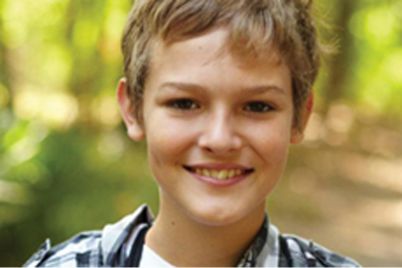3,100 children are currently being served in Pinellas County’s foster care system, and 40 percent of them are African American. Eckerd Connects urges black people to consider becoming a foster parent.
BY Dexter McCree, Feature Writer
PETERSBURG — The disproportion of African-American children in the foster care system is alarming and rapidly growing. According to Brian Bostick, the executive director for Eckerd Connects, Inc., 3,100 children are currently being served in Pinellas County’s foster care system. Forty percent of them are African American.
There are approximately 470 licensed foster homes in Pinellas and Pasco Counties. In Pinellas County, there are 242 foster families with about 53 traditional licensed foster homes in St. Petersburg, and with 1,000 new cases of child neglect, abuse and or abandonment reported to the Pinellas County Sheriff Office Child Protection Division each month, there are not nearly enough homes to house these youngsters.
Eckerd Connects Community Alternative is the lead agency contracted by the Florida Department of Children and Families to provide and oversee the distribution of protective supervision, foster care and adoption relative services in Pasco and Pinellas counties.
They, along with Man Up and Go!, hosted a clergy and leadership breakfast at the Callaloo restaurant on June 18 to discuss and bring awareness to a systemic quandary as it relates explicitly to the disproportionality of African-American children in foster care.
“We’re reaching out to the church; we’ve tried everything,” said Wanda Jones, Eckerd Connects Advisory Council. “This is not a Florida issue; this is not even a Pinellas County issue — this is a national issue.”
Since the church is a strong institution in the black community, Jones pleaded for their help in solving the foster care crisis.
“We need your reaction; we need your responsibility,” she said, asking the clergy to “lock arms with the system” and help black children find loving homes.
Out of the 3,100 foster children in Pinellas, the majority are ages zero to five. They are most likely to be removed because of their parents’ drug use, domestic violence, or mental health issues.
“If we don’t change the trajectory for these children, they’re going to end up in our criminal justice system; they’re going to end up homeless or they are going to end up being teen parents,” asserted Bostick, whose mother and father were once foster parents.
He also stressed the need for black children being placed in black foster homes so that they can remain in their community.
“We have foster parents that don’t understand about our skin and our hair,” Bostick averred. “They do everything that they can, and they try to make it work for our kids; however, they do not understand.”
Having foster homes in St. Petersburg are essential to the stability of an already displaced child who would be in imminent danger if remained in their home. It is vital that the child have some normalcy and stay connected to their environment, culture and community in which they are familiar.
When a child enters the foster care system, their whole world is shaken. They often have to transfer to a new school, find new friends, attend a different church, and learn a new neighborhood. It’s an unforgiving lifestyle.
Jeff Ford, CEO of Man Up and Go has an adopted son from Africa. He said there are conversations he cannot have with his son because as a white man, he’ll never have many of the experiences his son will face. But, he did not let that stop him.
“The problem that Man Up and Go is trying to solve is fairly simple to understand – we want every child to have a father. Over 700 million children in the world do not have a steady, consistent, loving father-figure in the home. The severity of the risks for children without a father has been well-documented. Foster care feels the impact.”
One couple at the breakfast, William and Tia Kilpatrick, is responding to the charge of being foster parents. They have eight boys and one girl of their own ranging in age from 18-38 years old.
The couple relocated to St. Petersburg from the Panhandle in Oct. 2018 when their home was destroyed by Hurricane Michael. They lost everything except their love for children. Almost immediately, they sought to become licensed foster parents.
“We have a love for children. Our strength is nurturing, loving and caring. If people would open their heart, it will open their life. We can’t get too comfortable. When we meet needs, it gives purpose to your life,” stated Tia Kilpatrick.
“It really is about community,” said Laurallyn Segur, senior director of Licensing and Recruitment for Eckerd Connects. “You should not have to remove a child in St. Petersburg and the child be sent to Pasco County because there are no available homes in St. Petersburg or the community the child lives in.”
The child welfare system is overwhelmed; however, the remedy could very well be the unused bedroom in your home! Consider becoming a foster parent. If you feel you can’t commit to a full-time foster child, consider becoming a respite parent who takes care of children for a few days while their foster parent gets a break.
Training and orientation are offered in convenient locations throughout Pinellas County, or someone can come to your church or organization and give a brief orientation.
For further information, please call Laurallyn Segur at (727) 456-0600 ext. 2002.
To reach Dexter McCree, email dmccree@theweeklychallenger.com








